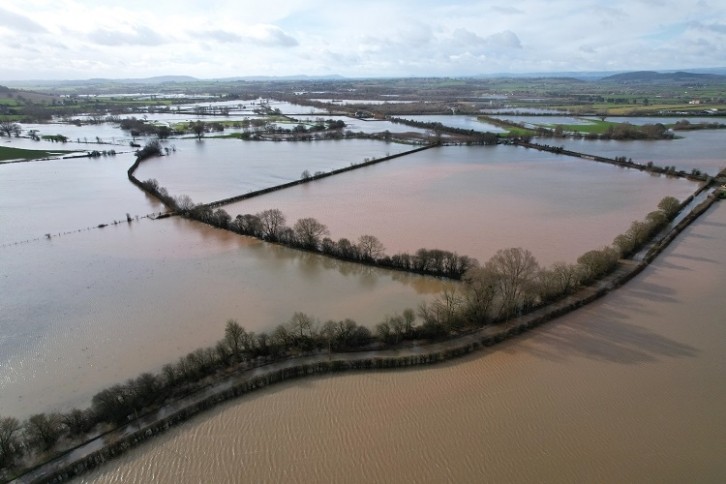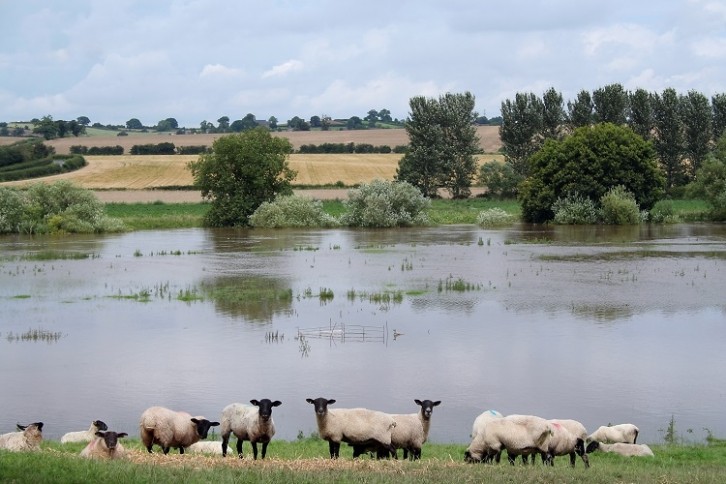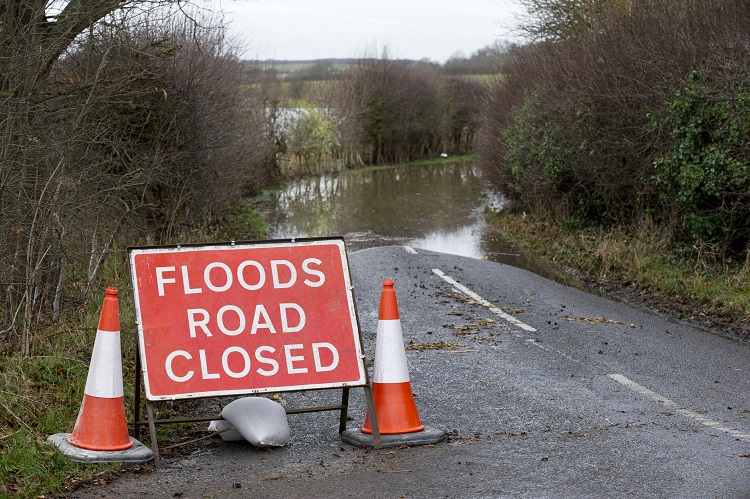Meals producers are already beneath immense strain, coming from components together with rising power prices and regulatory adjustments – such because the implementation of EUDR. Now the highly effective results of local weather change are starting to be felt by meals producers throughout the globe as excessive climate occasions put meals safety in jeopardy.
Excessive climate occasions affecting meals manufacturing
In the event you reside within the UK, then you definitely’ll be all too conscious that latest months have been nicely damp, to say the least. In actual fact, the winter of 2023 into 2024 has been confirmed because the eighth wettest winter on file, inflicting widespread flooding throughout the nation, together with farmland, with wheat, barley and vegetable farmers reporting losses to floodwaters.
Why do some bushes want a heavy frost?
Sure sorts of bushes require a frost to supply what’s known as ‘chill hours’. Chill hours are the variety of chilly hours or days {that a} deciduous fruit or nut tree requires for flowering and fruit manufacturing annually. Each fruit tree selection has its personal particular variety of ‘chill’ hours required to supply fruit. Some fruit bushes want as few as 100 hours whereas others want over 1000 hours.
“Because the finish of final yr, we’ve seen a whole bunch of farms throughout the nation face the devastation of flooding and the massive monetary stress and distress that brings. Some farms in Lincolnshire have been beneath water since final October and that’s fully unacceptable,” Tom Bradshaw, president of the Nationwide Farmers Union, advised FoodNavigator.
Along with being one of many wettest winters on file, the Met Workplace has confirmed that February 2024 was the warmest February on file for England and Wales, with a median temperature of seven.5 levels Celsius recorded in England and a median of 6.9 levels Celsius recorded in Wales. And the UK as an entire noticed its second warmest February ever recorded.
“February has maybe been the quietest month of the winter, with none additional named storms, whereas Gerrit in December and Henk and Isha in January all brought about vital climate impacts,” defined Mike Kendon, senior scientist on the Met Workplace. “Regardless of a chilly spell within the north within the first half of the month, the primary theme of February is how persistently delicate and moist it has been.”
Fewer laborious frosts are impacting the expansion of fruit bushes, together with apples and pears, which depend upon heavy frosts as an important a part of their development cycle.

Excessive climate is right here to remain
The pattern for wetter winters does sadly seem like right here to remain.
“Local weather projections point out that on common, winters will proceed to change into wetter, and summers drier, although pure variability will imply we’ll proceed to see particular person years that don’t observe this pattern,” stated a spokesperson for the Met Workplace. “As our environment warms it could possibly maintain extra moisture, roughly 7% extra per 1 diploma Celsius of warming. This brings a threat of elevated frequency and longevity of heavy rainfall occasions sooner or later, significantly throughout winter, if greenhouse gasoline emissions proceed to rise.”
Moreover, temperature extremes of cold and warm situations are set to proceed, with a research by UCAR Middle for Scientific Schooling reporting that, “local weather fashions predict that earth’s world common temperature will rise an extra 4 levels Celsius throughout the twenty first Century if greenhouse gasoline ranges proceed to rise at current ranges.”
What’s inflicting these excessive climate occasions?
Although some climate occasions are anomalies, such because the UK’s a lot talked about ‘Nice Storm’ of 1987, the overarching pattern in direction of excessive climate occasions is attributed to local weather change.
What are the first causes of local weather change?
- Burning fossil fuels: The burning of fossil fuels, akin to oil, gasoline, and coal, releases carbon dioxide into the earth’s environment, inflicting the earth to warmth up.
- Deforestation: Bushes absorb carbon dioxide to be used in photosynthesis, so the chopping down of bushes removes this important course of. Moreover, the carbon dioxide, which is saved throughout the bushes is launched again into the environment if the wooden is burned.
- Agriculture: Planting crops and rearing animals releases a number of various kinds of greenhouse gases, together with methane from livestock and nitrous oxide from fertilisers, into the environment.
What assist is accessible for farmers?
In mild of the acute climate situations, it’s vital to not solely take motion in opposition to local weather change, but in addition to help farmers in defending their farms from excessive climate occasions This may assist to guard the livelihoods of farmers and assist to safe the way forward for meals manufacturing.
“Heavy rainfall this winter has affected communities throughout the North of England, with the Ouse catchment and Yorkshire seeing one of many wettest Decembers since information began over 150 years in the past,” stated flooding minister Robbie Moore. “Visiting farmers in Yorkshire, I noticed first-hand the challenges they’ve confronted, and it was good to listen to extra about options for stopping agricultural flooding. We all know there may be extra to do to make sure the area is extra resilient to those occasions and that’s why since 2015 the Authorities has invested £529 million [in] flood defences.”
Farmers throughout the UK may be may be eligible for presidency grants as much as the worth of £25,000, via the Farming Restoration Fund, in direct response to the flood injury attributable to Storm Henk
Nonetheless, the Nationwide Farmers Union (NFU) is demanding extra than simply monetary support, they need options and has been lobbying for the federal government, demanding it recognise the strategic significance of home meals manufacturing and ship options to mitigate the affect of flooding on farmland.

“Greater than 50% of our greatest productive farmland is located in low-lying areas and if we’re severe about our home meals safety and producing extra right here, then we’ve to keep up these river programs which have been uncared for for many years,” defined NFU’s Bradshaw. “There must be political will to supply extra funding to the Atmosphere Company, so it could possibly ship a proactive plan of administration and re-investment within the watercourses and flood defences it’s answerable for, to make sure British farmers and growers can proceed producing climate-friendly meals.”
Following Storm Babet in October 2023, the NFU despatched a letter to Westminster, signed by greater than 1,750 folks, urging all political events to stipulate their plans to guard farming companies from flooding.
“45,000 properties are already protected because of our flood defences, and I wish to pay tribute to the work of Atmosphere Company groups, first responders, and others, stated Steve Barclay, secretary for the Division for Atmosphere Meals and Rural Affairs (Defra). “For many who have sadly been affected, our Property Flood Resilience Restore Grant Scheme will quickly be open to assist residents defend their property sooner or later, whereas our Farming Restoration Fund will help farmers who’ve suffered injury as they work to place meals on our tables.”


